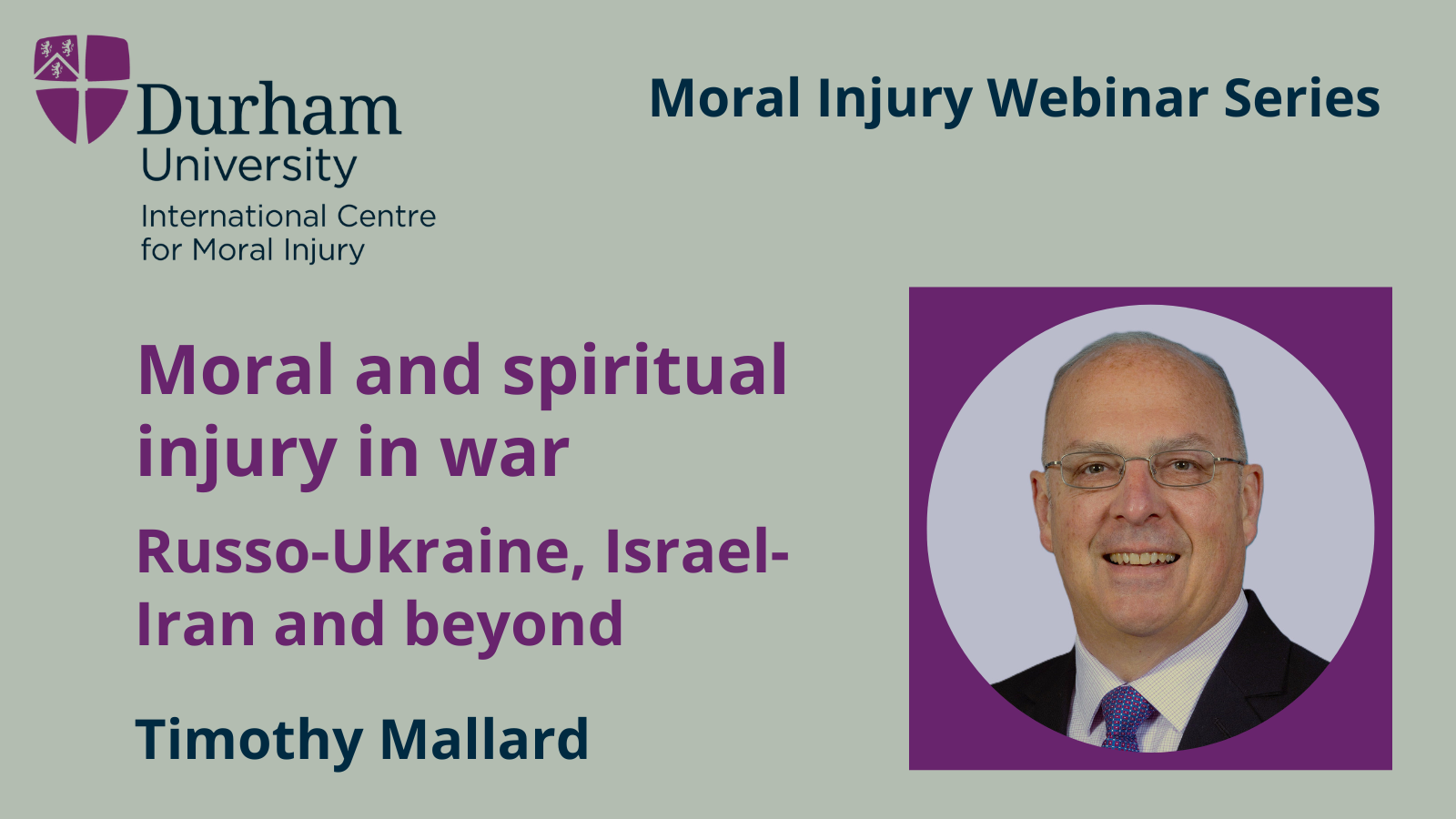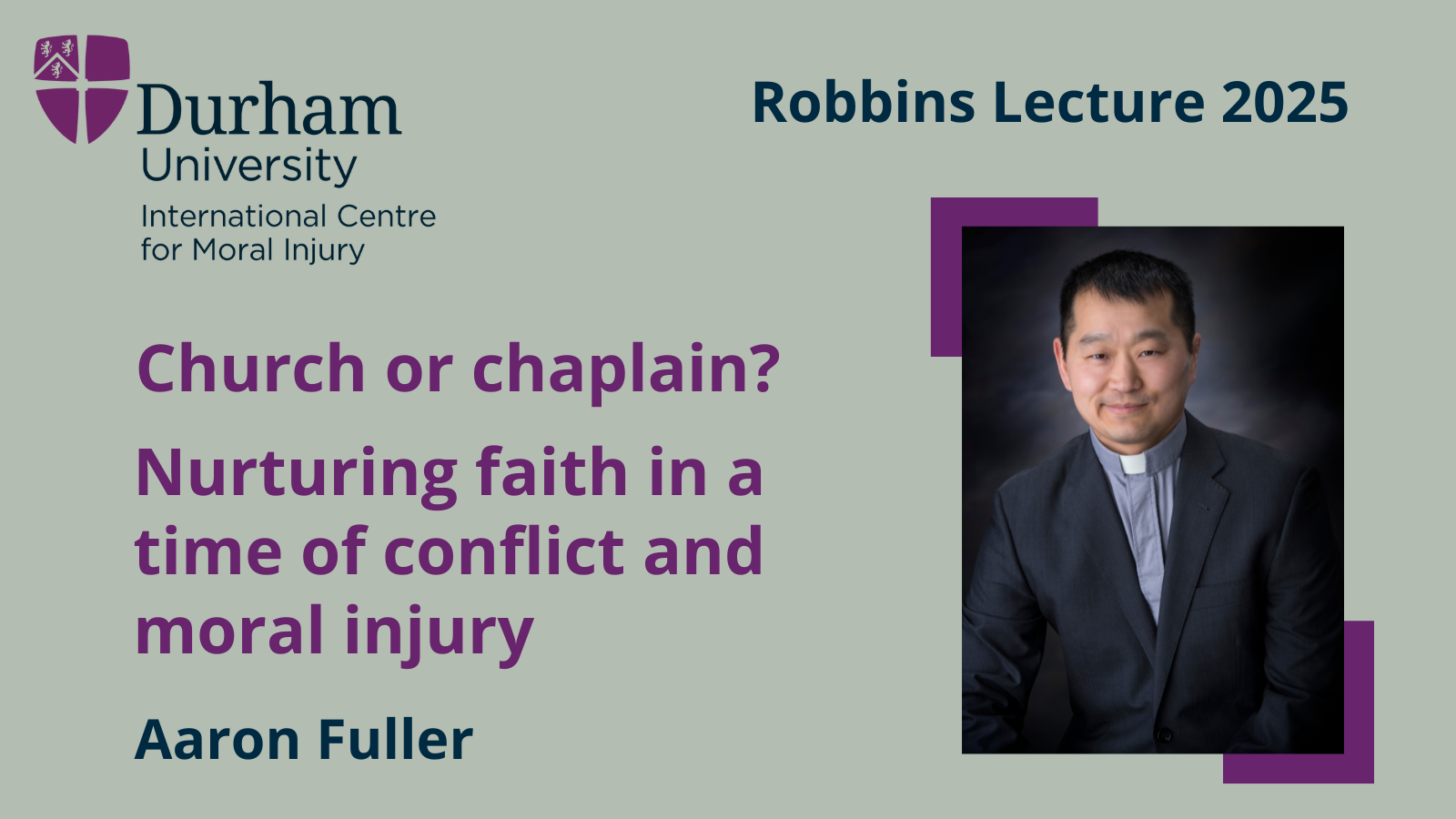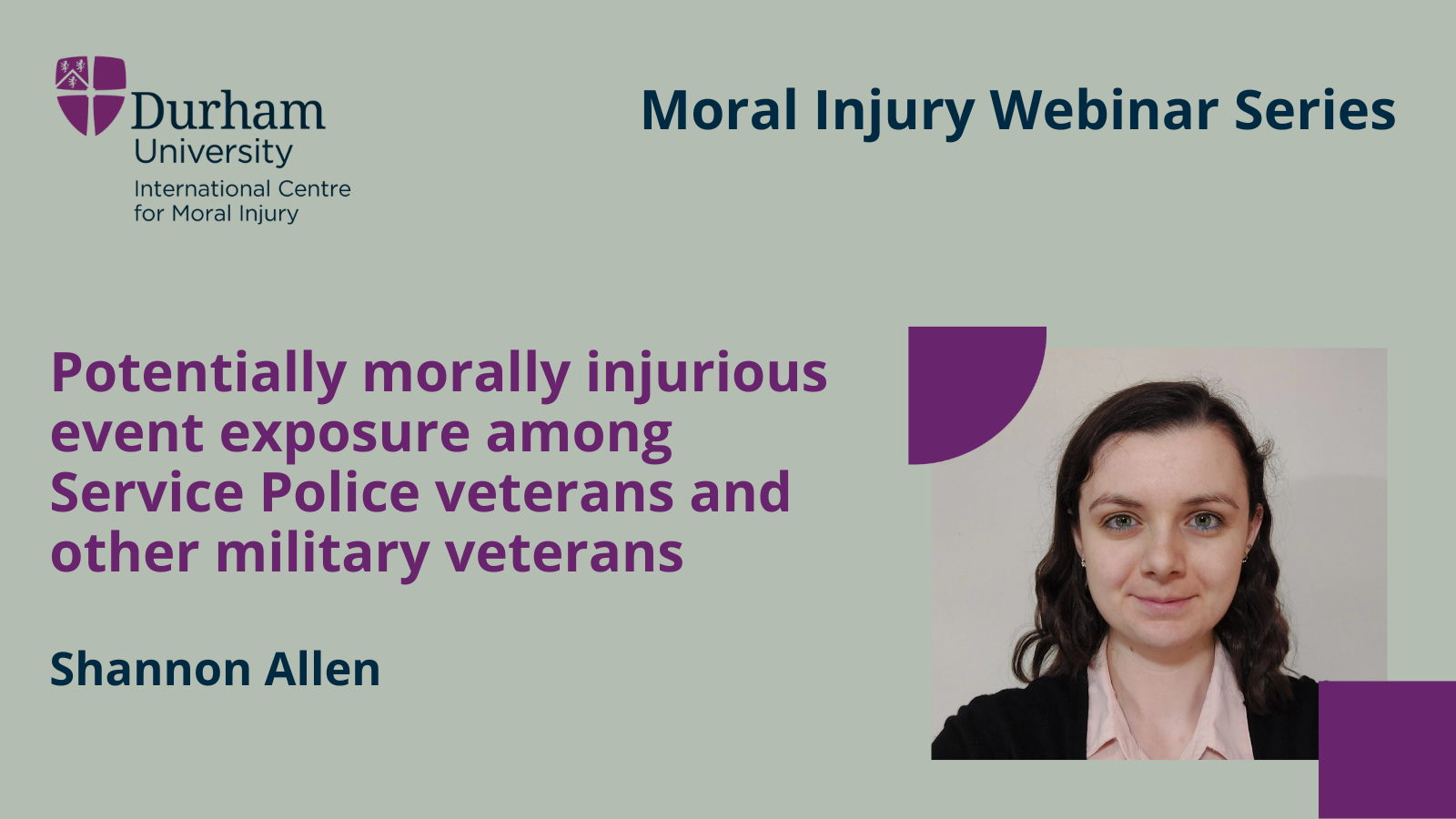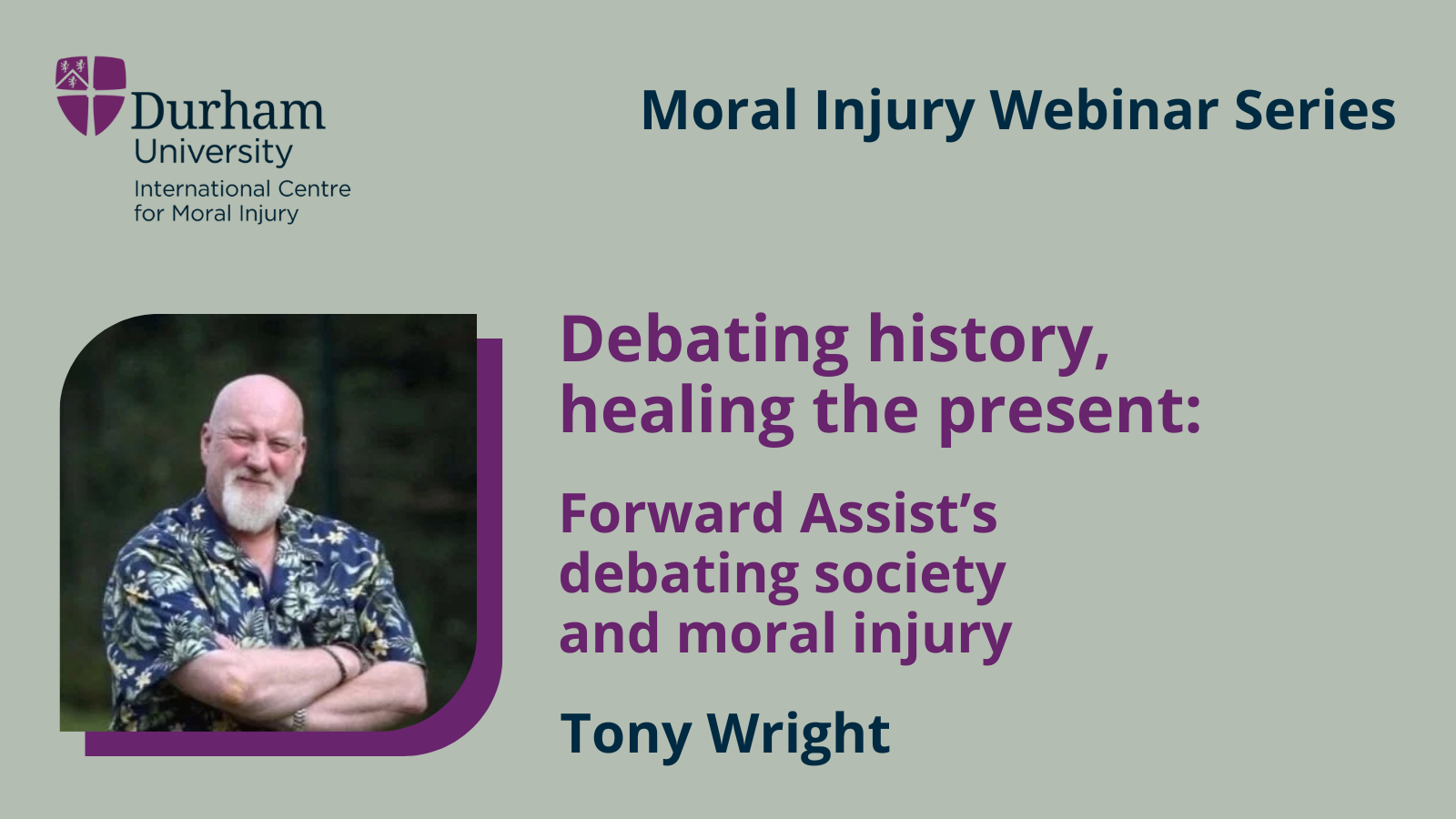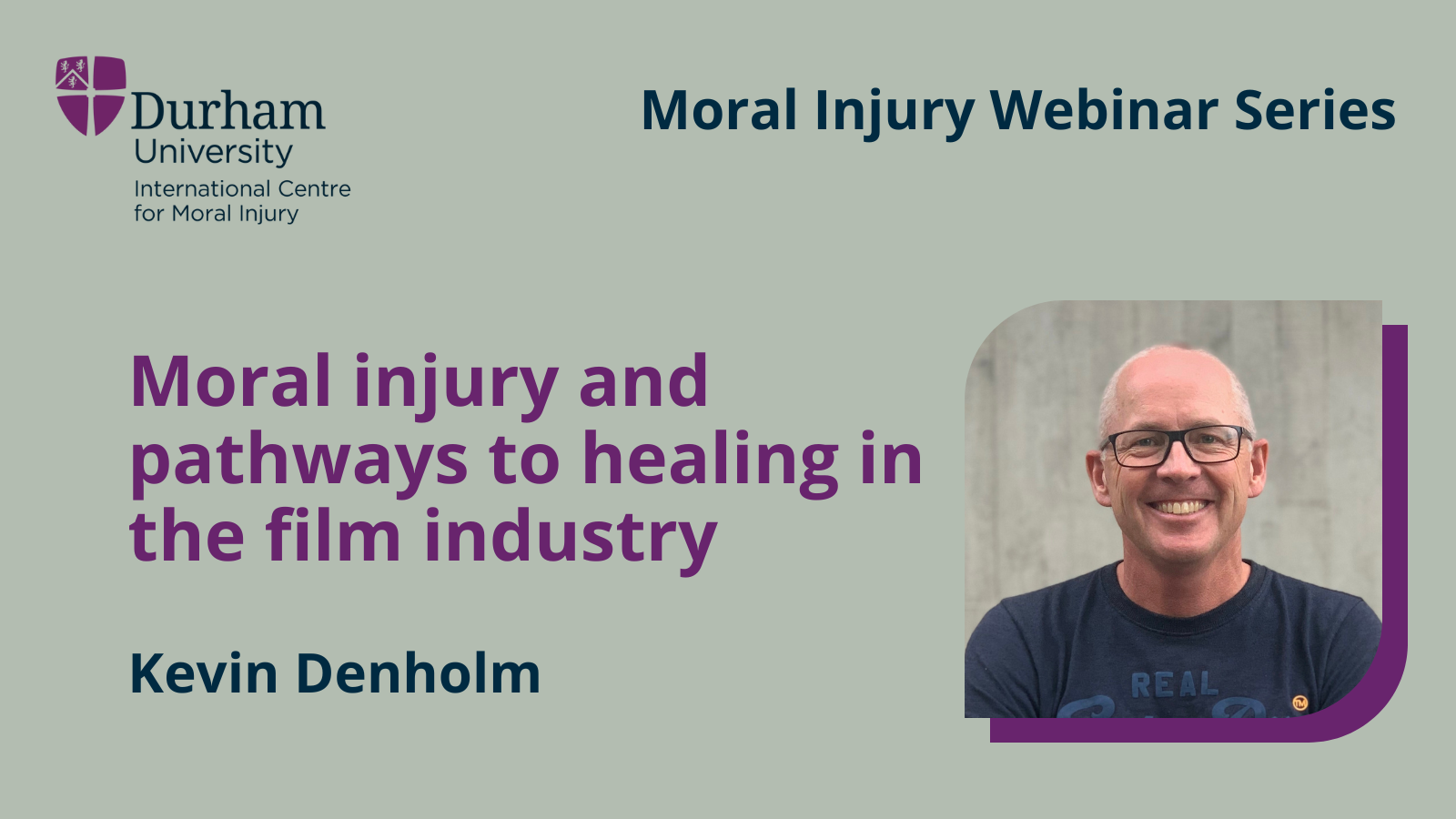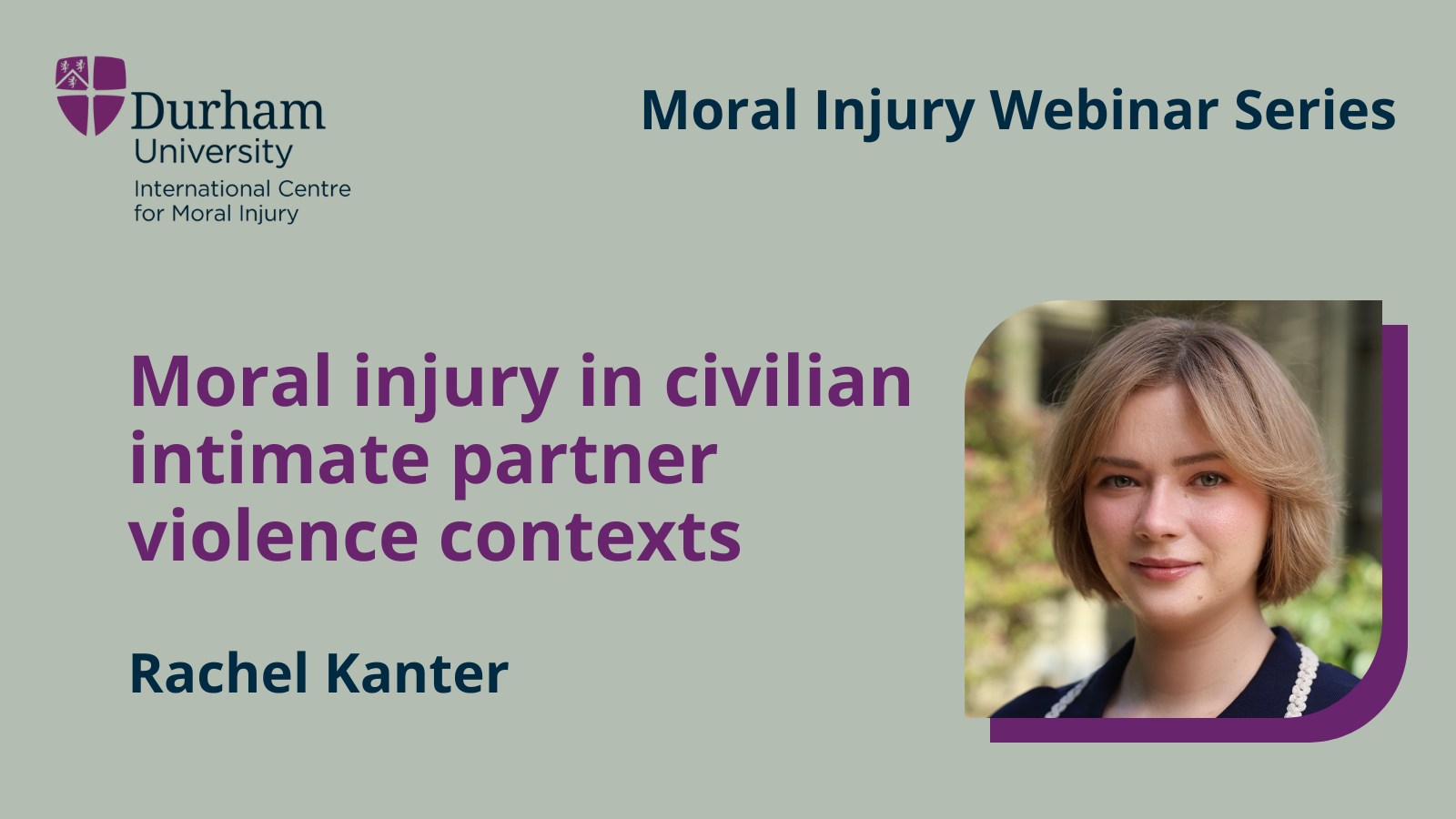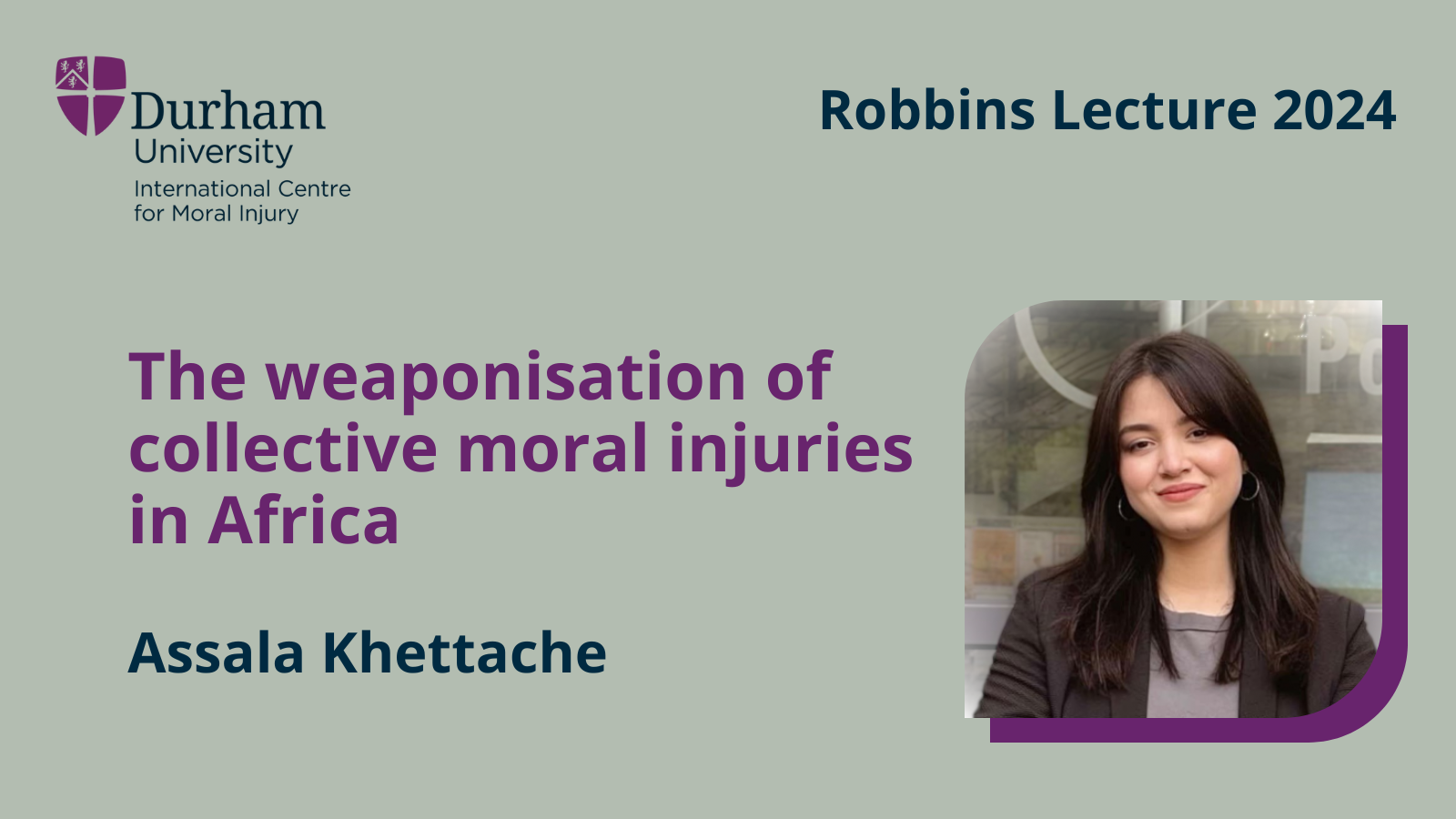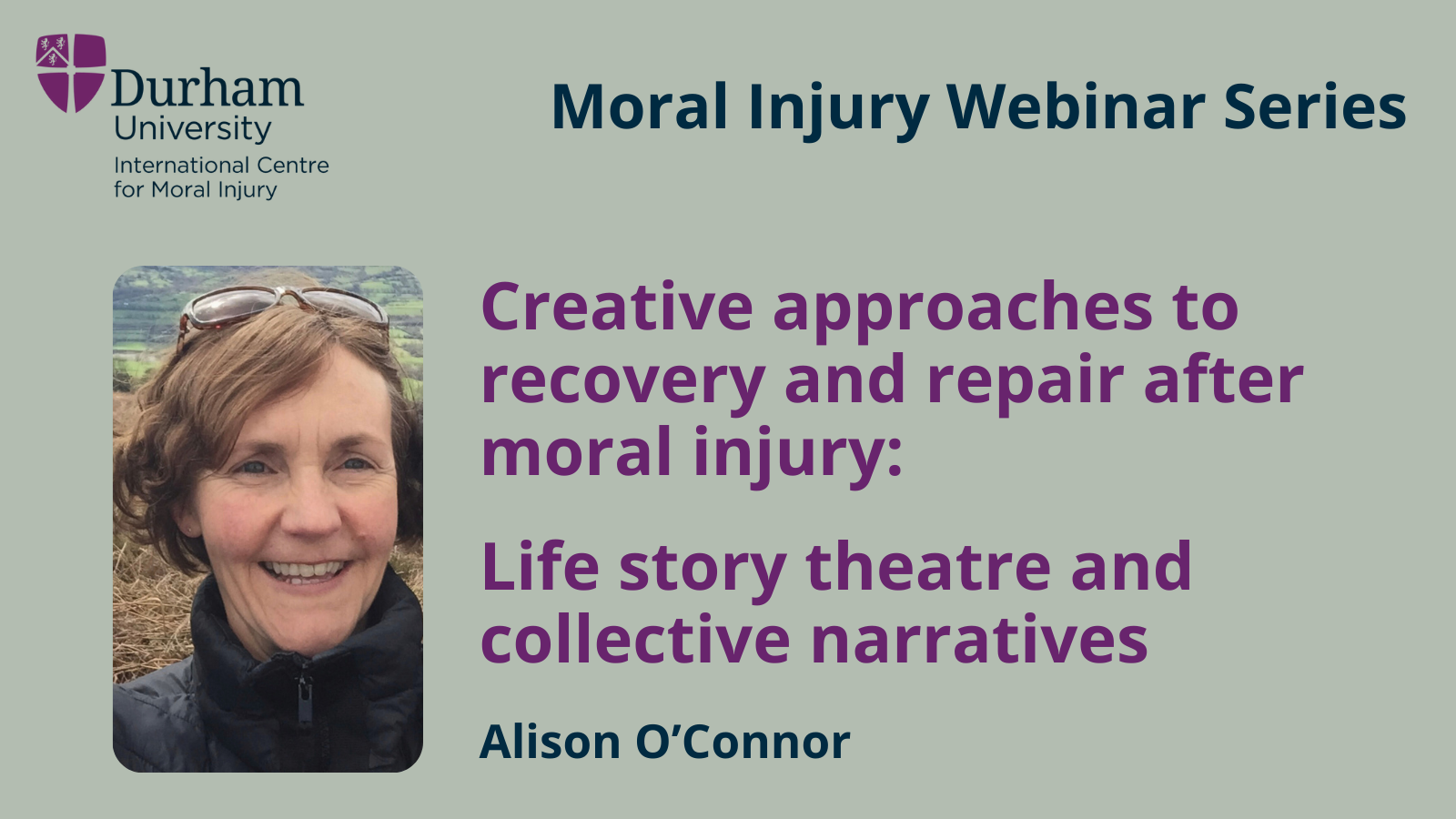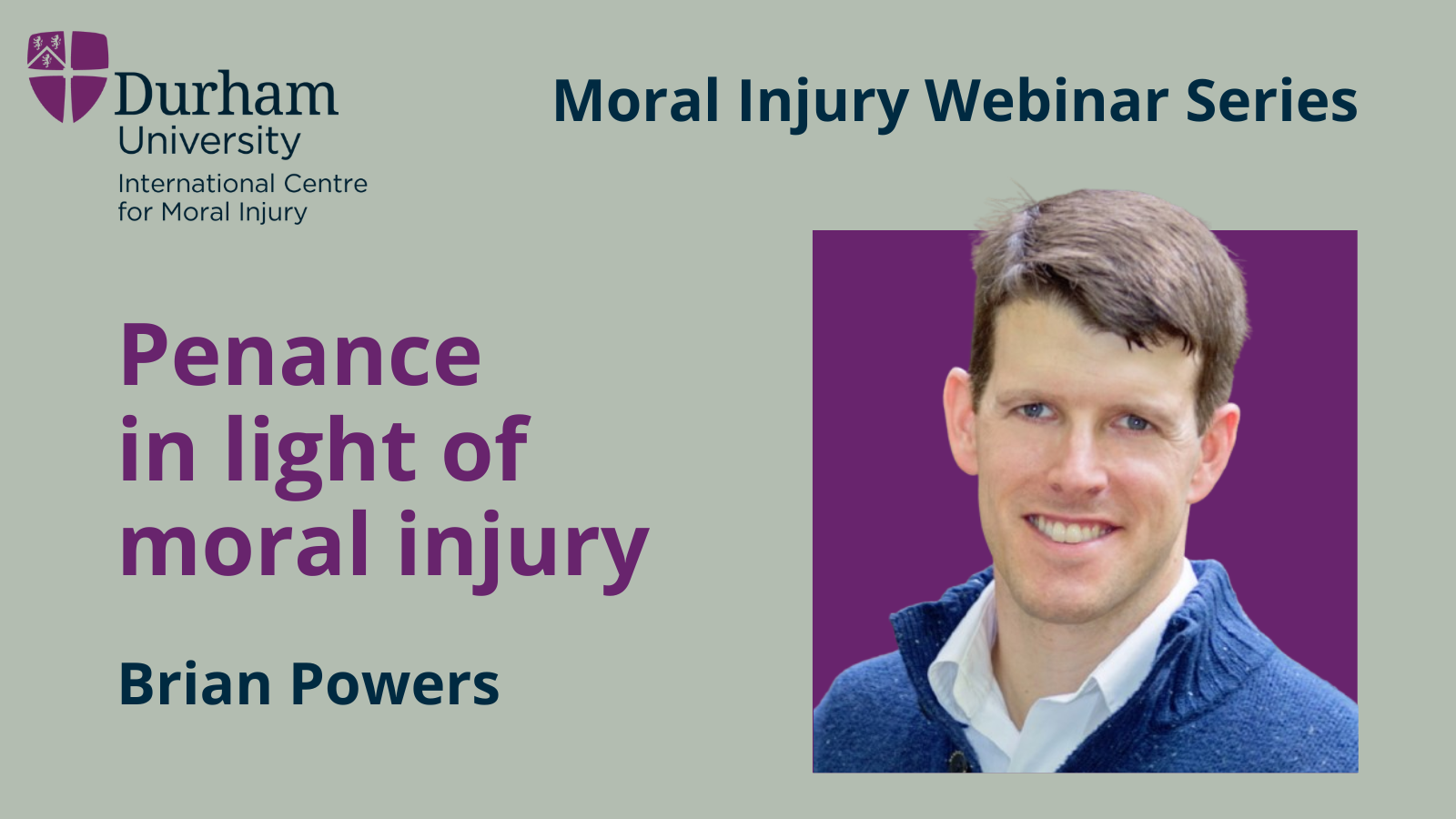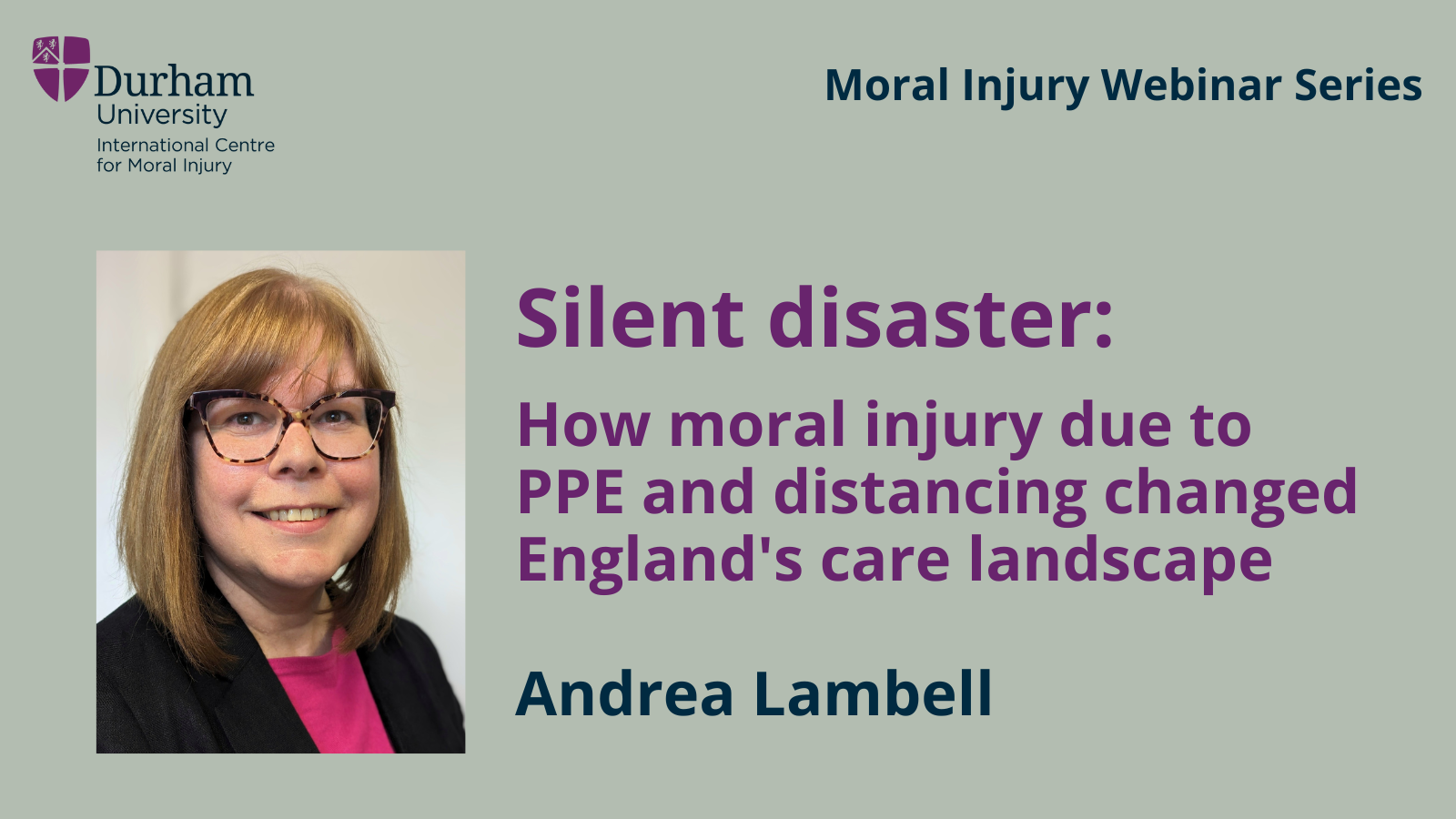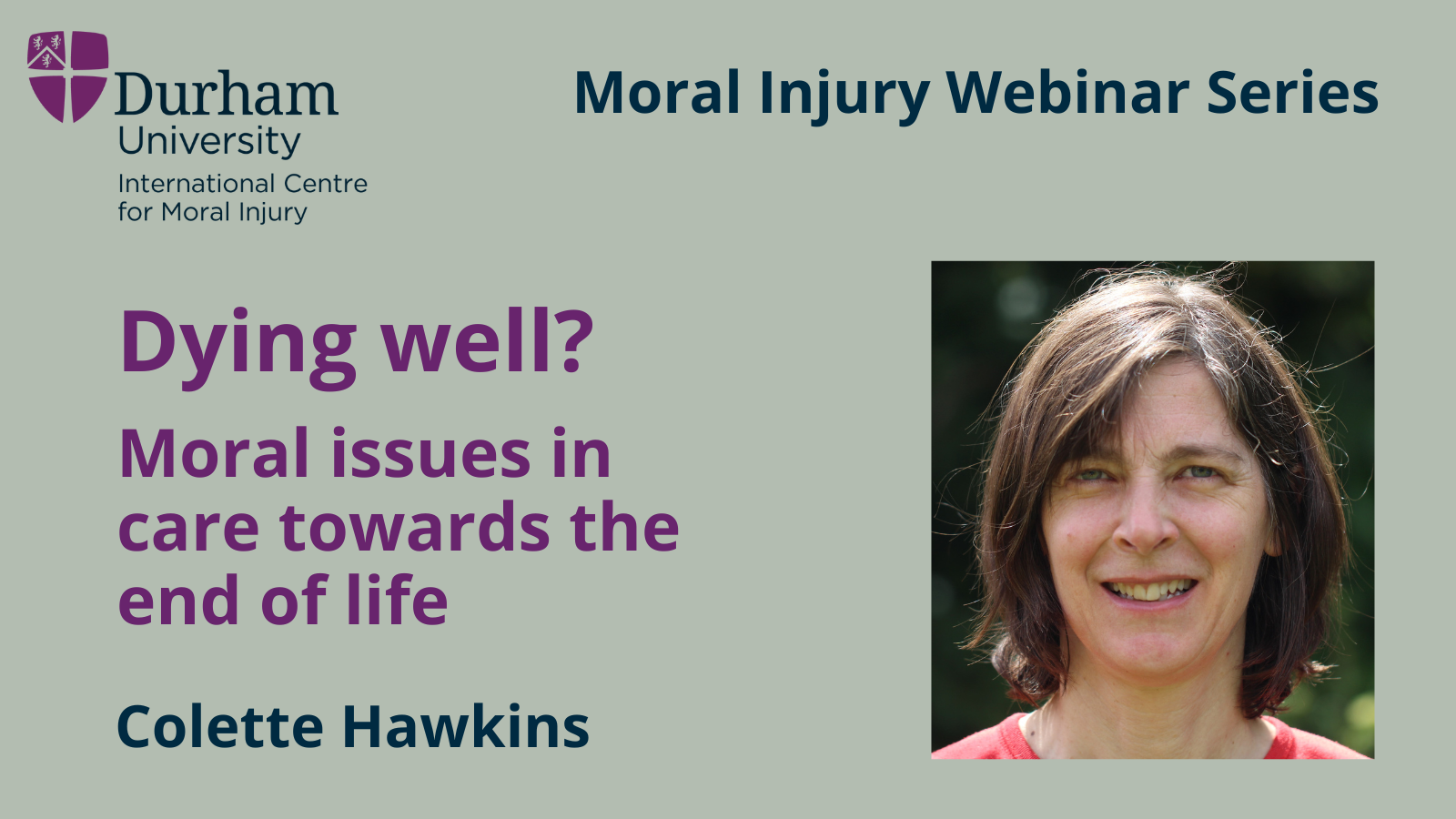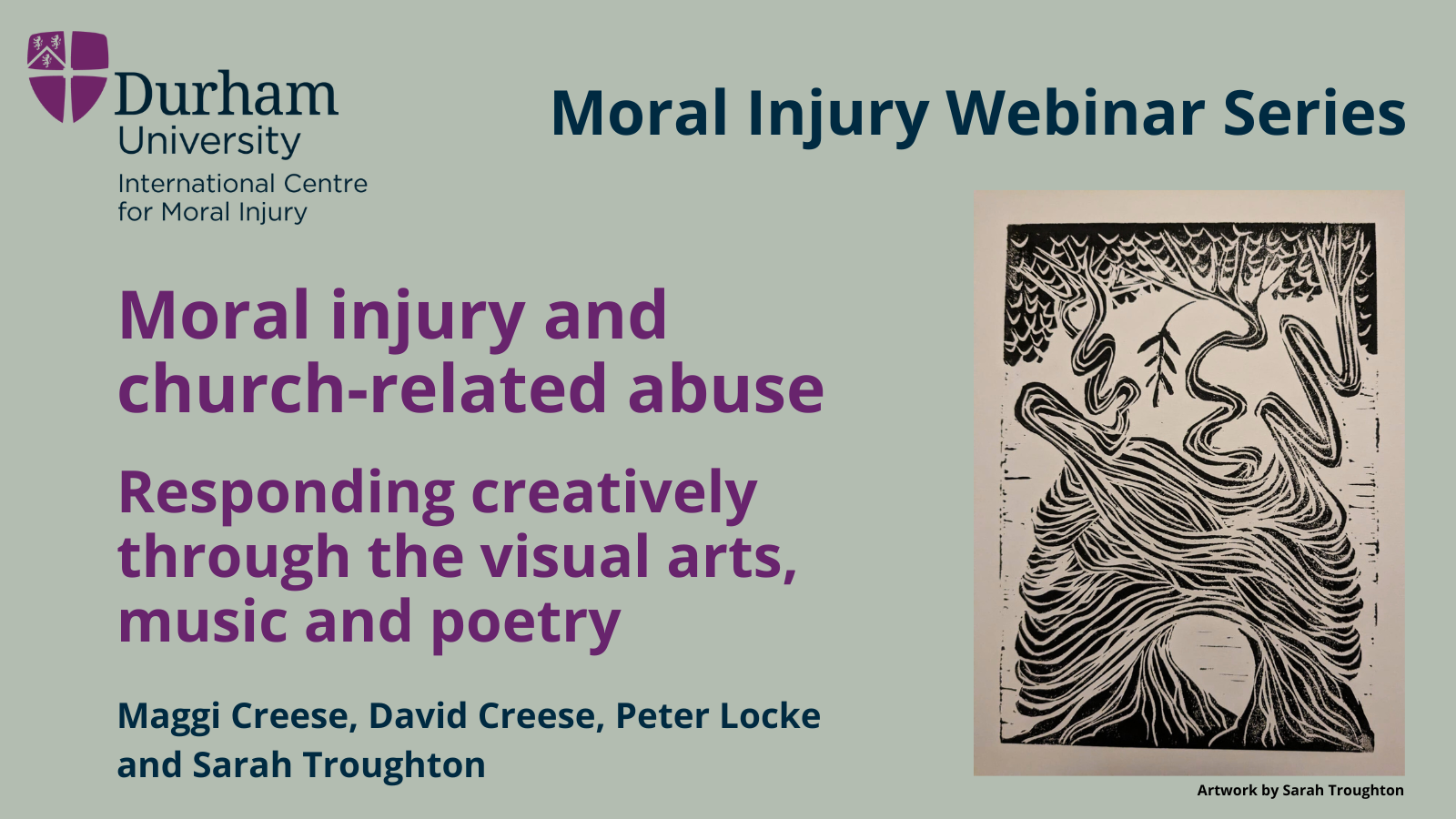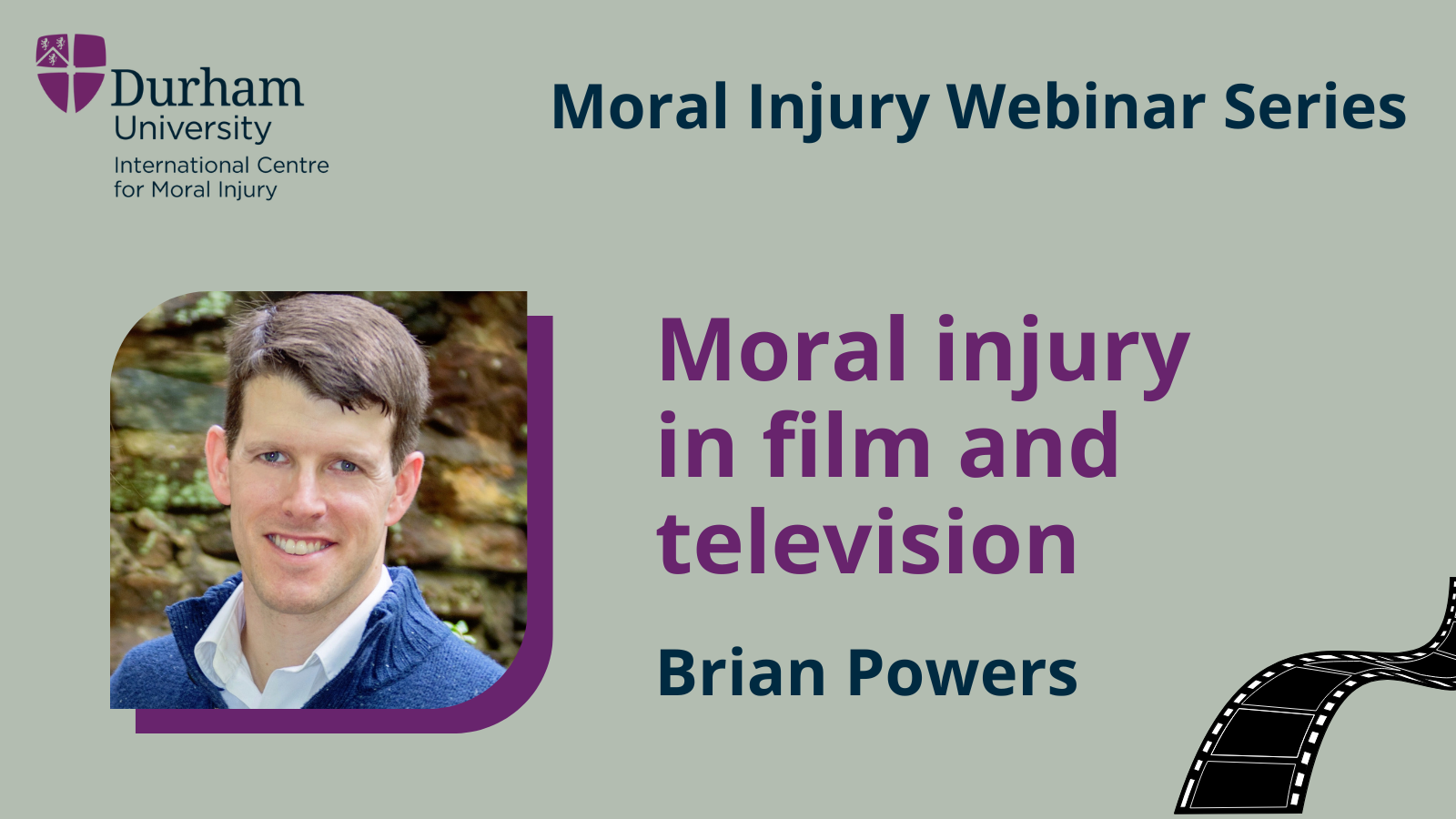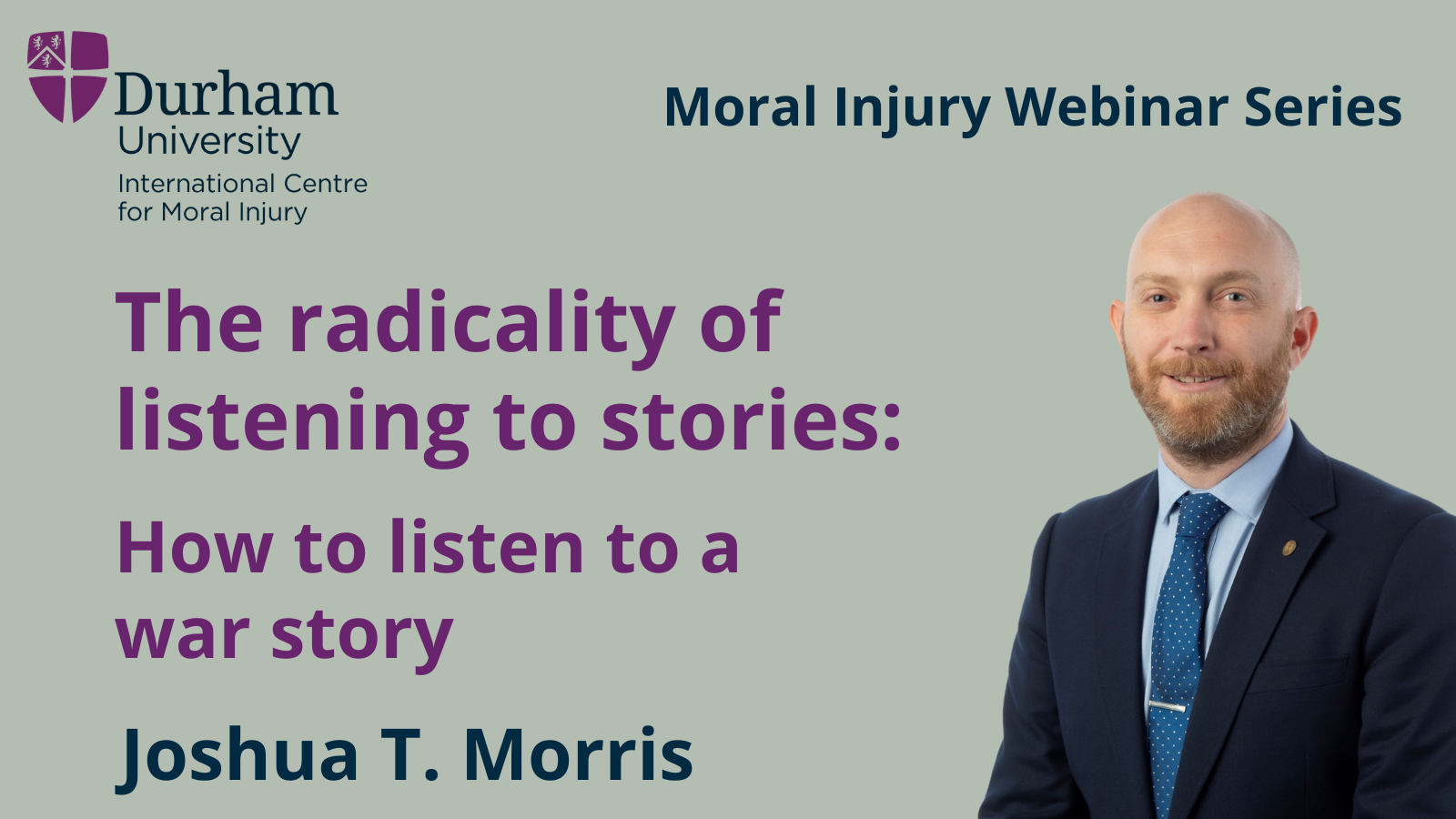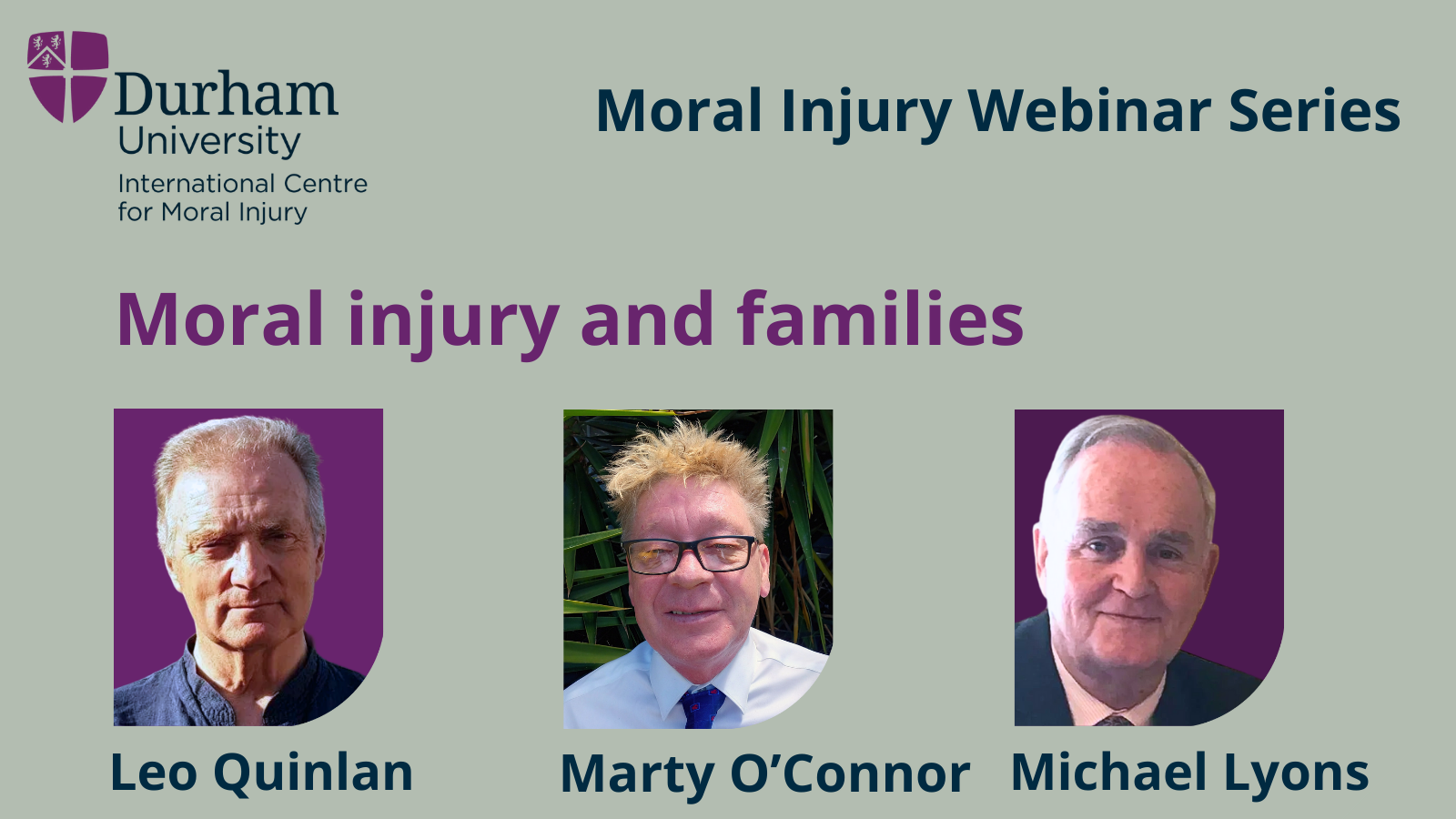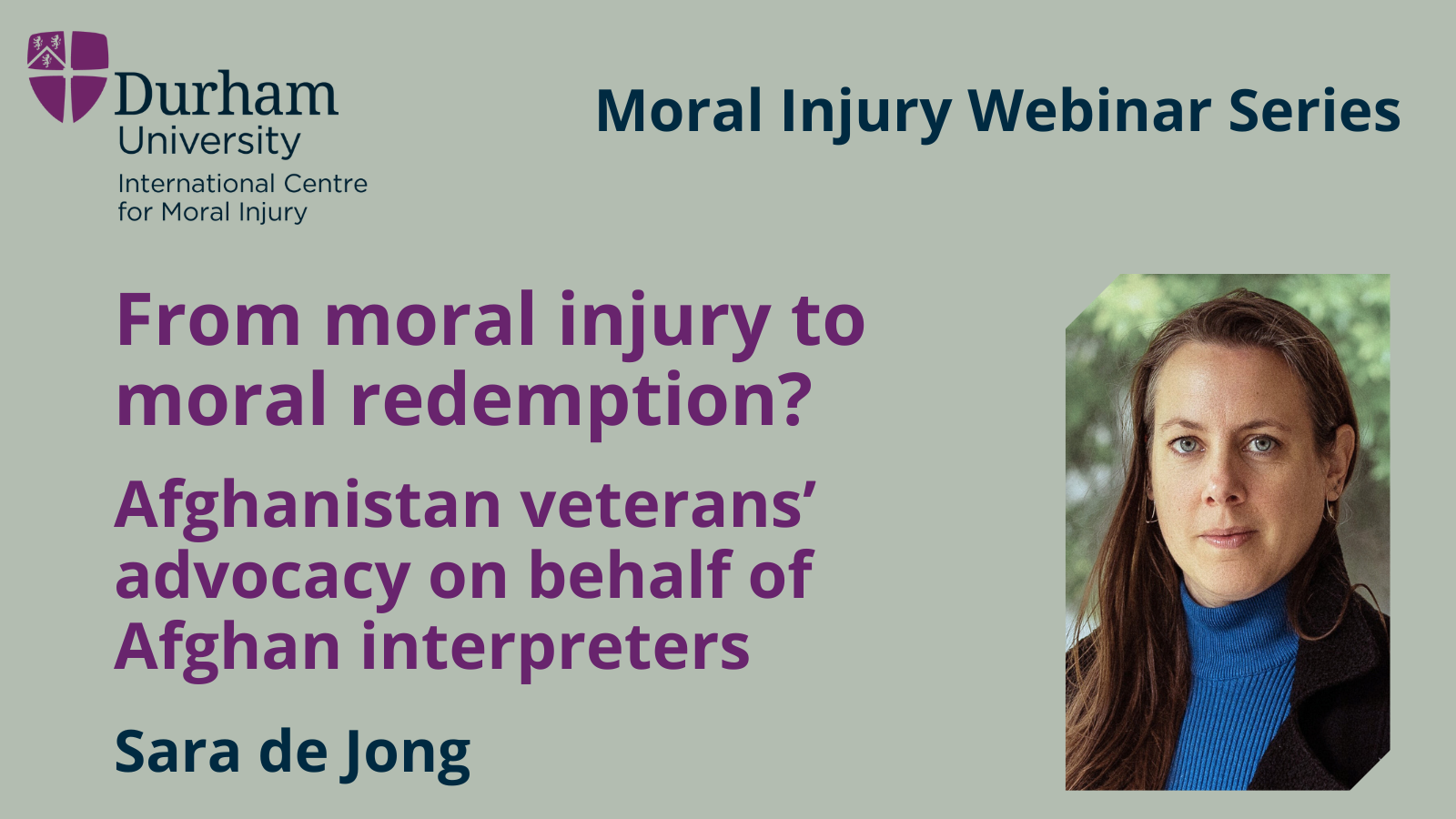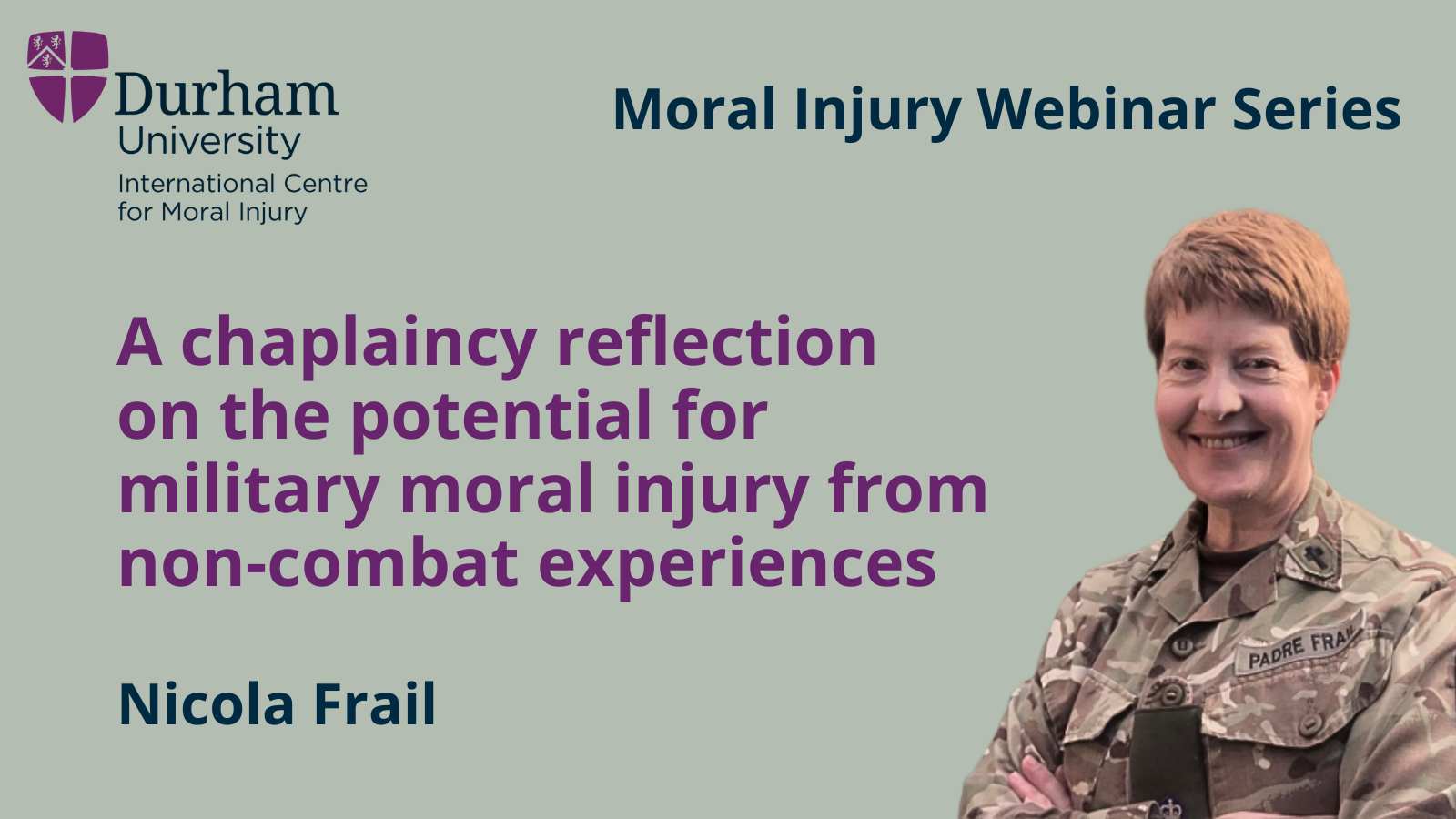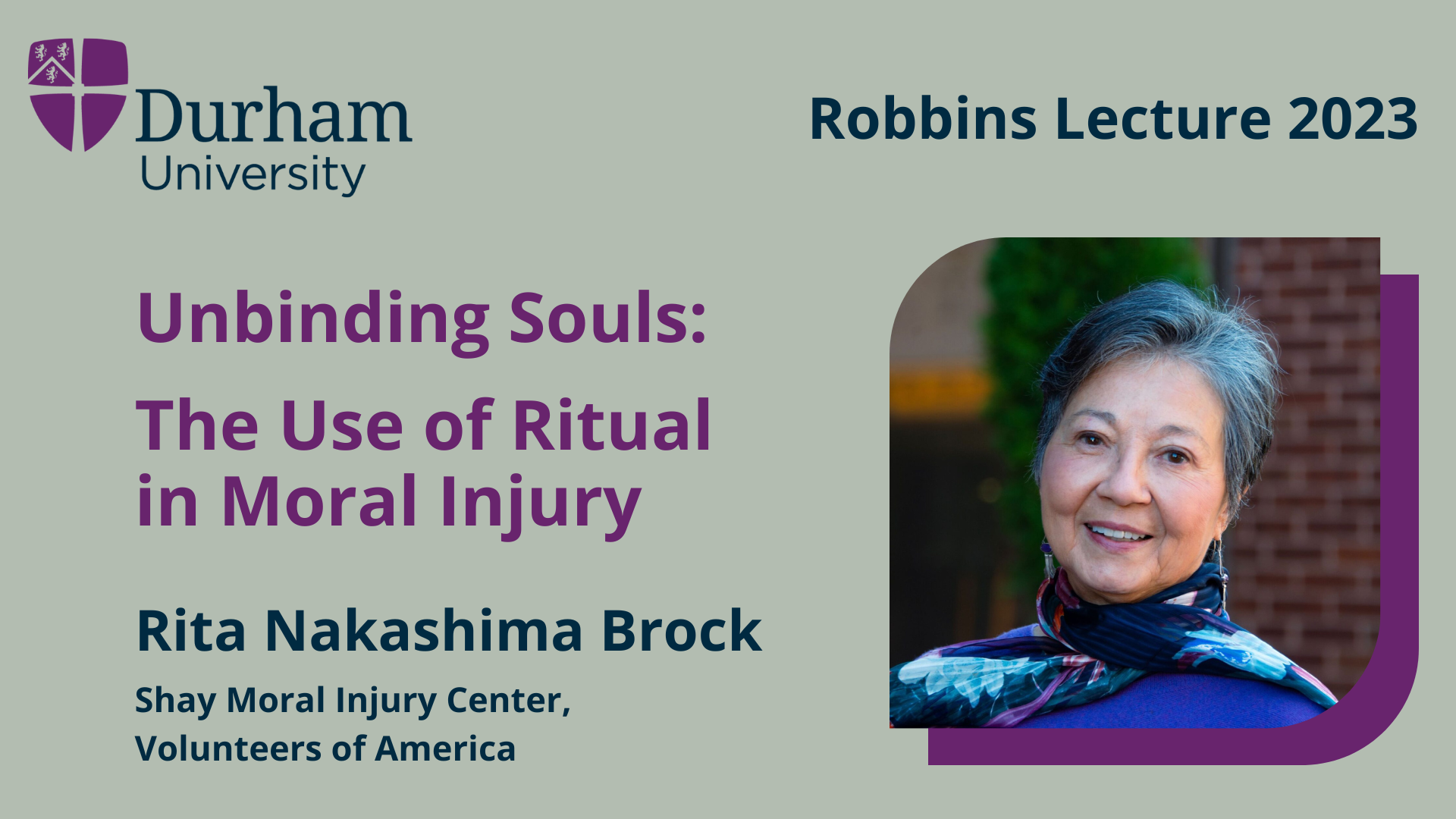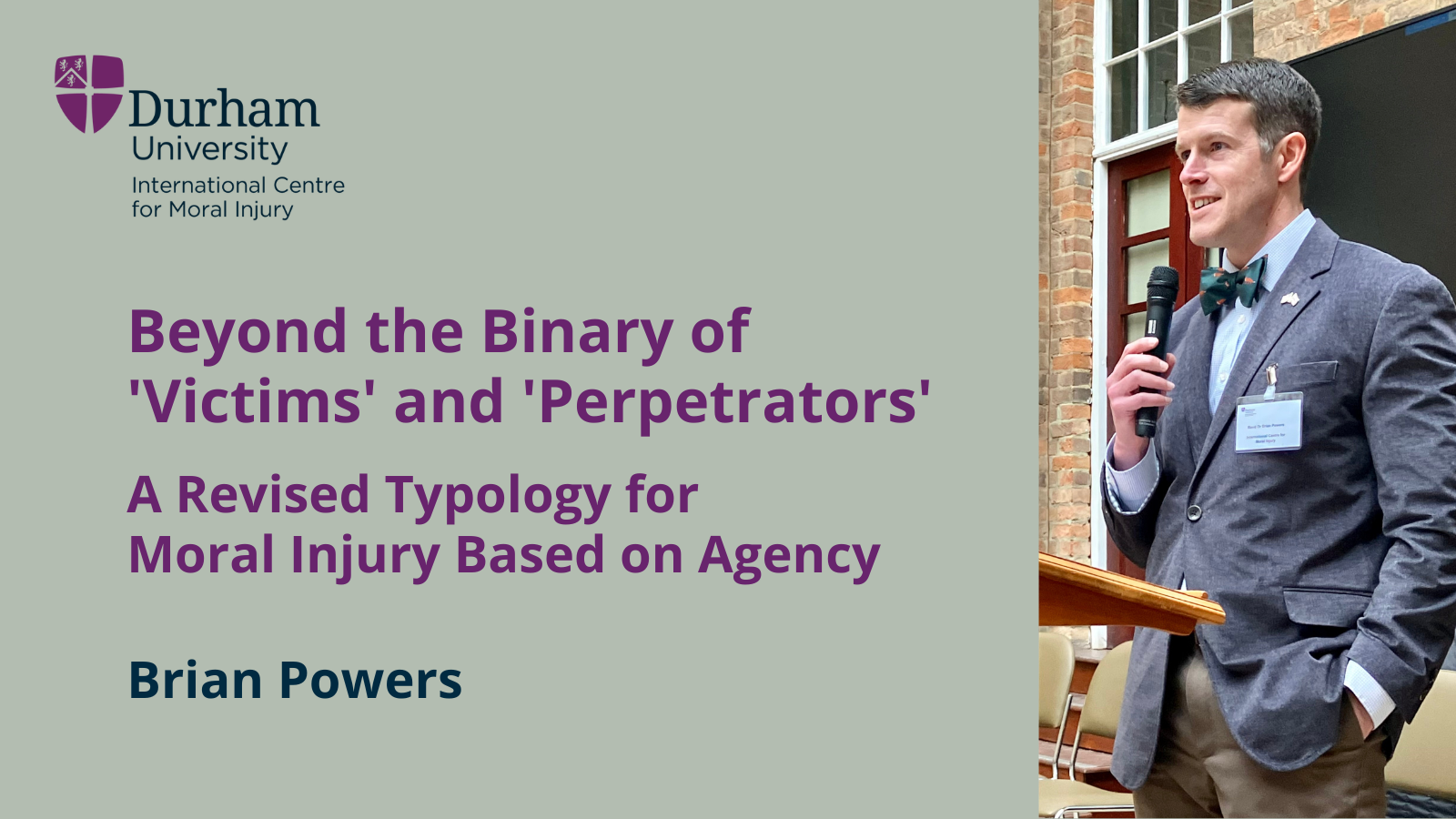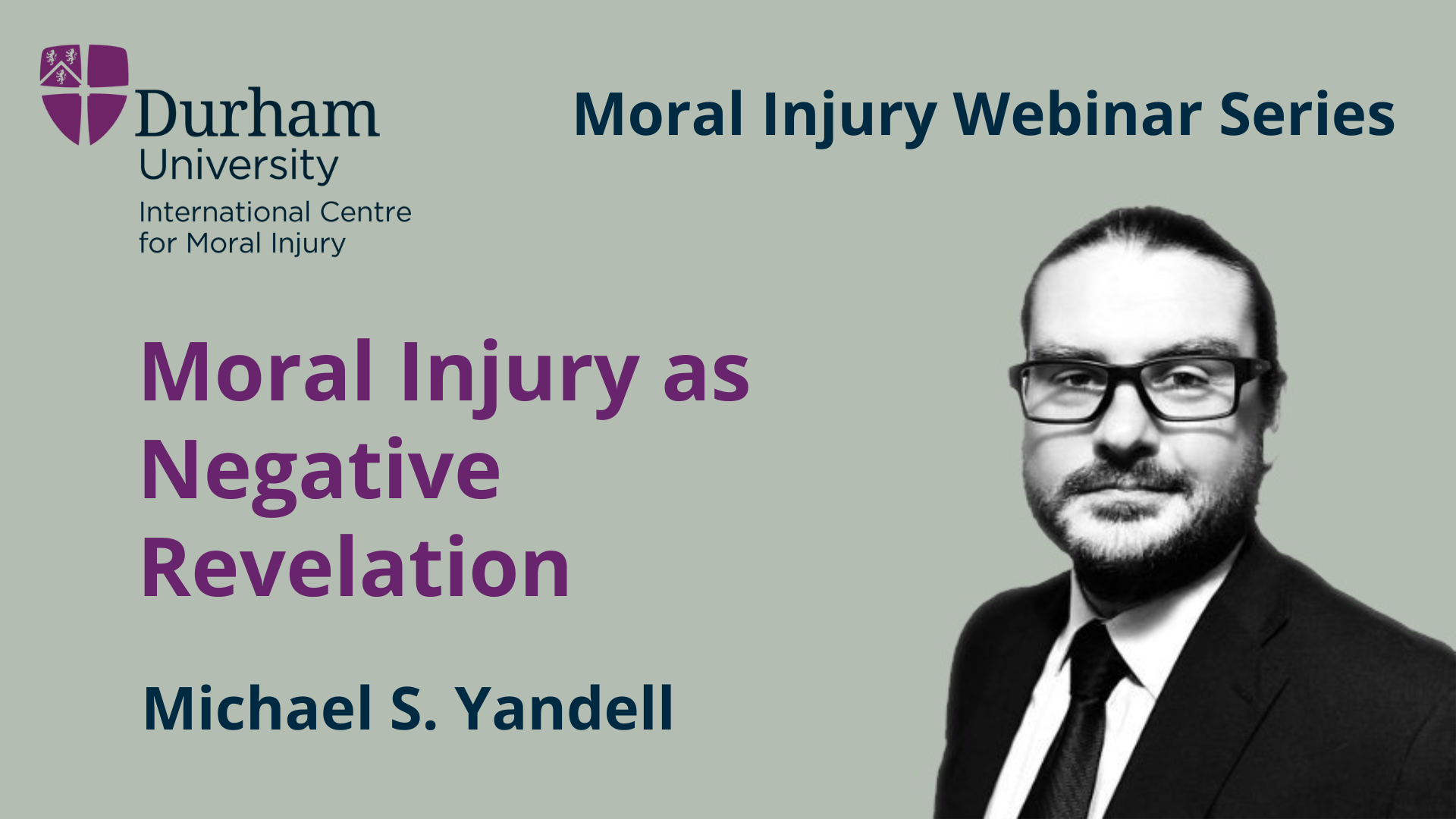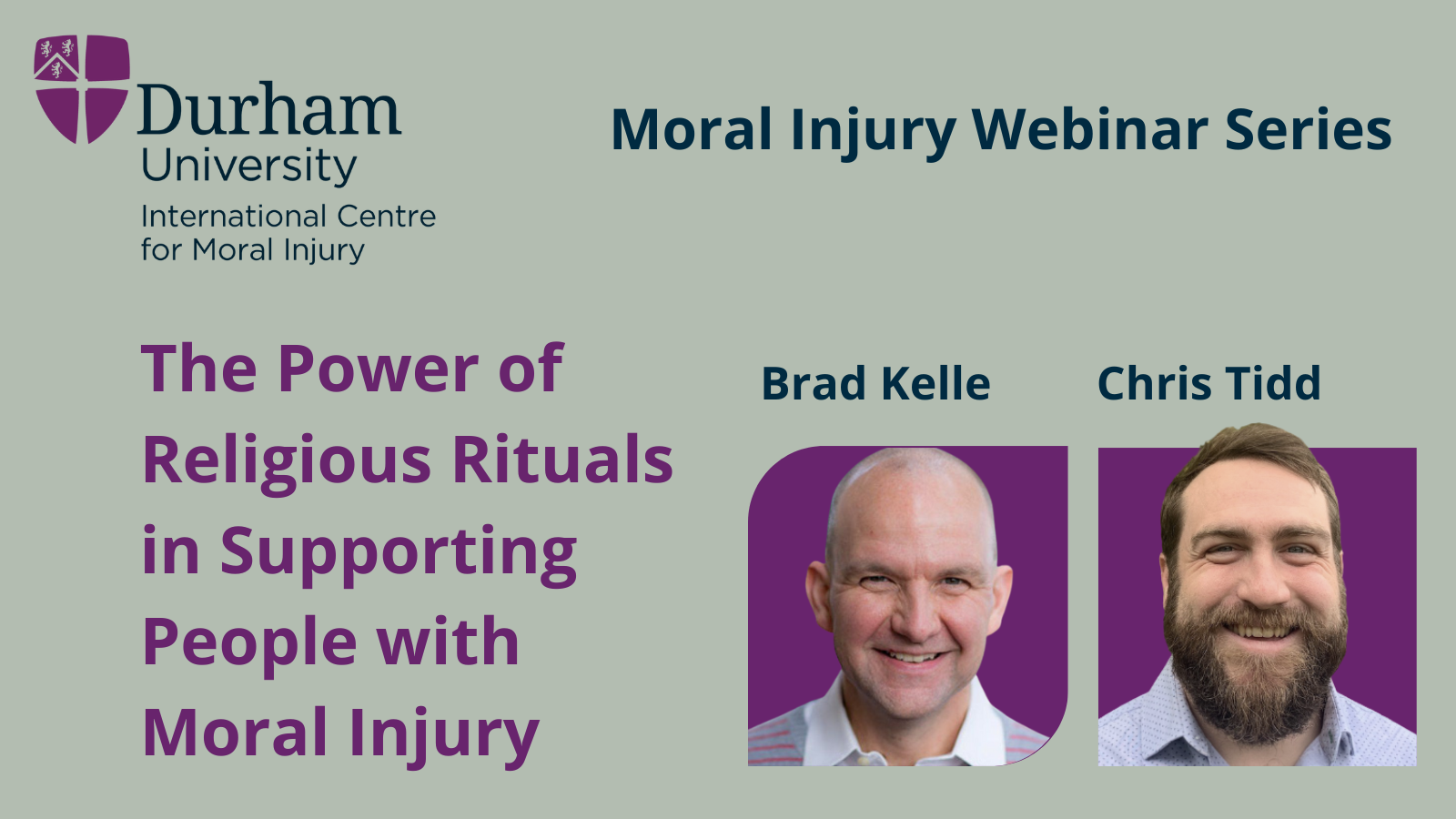Moral Injury Webinar Series
Next event
Rising fascism and threats to democracy today: The role of moral injury
Dr Rita Nakashima Brock
Tuesday 3 February 2026
6pm-7.30pm in Seminar Room B, Abbey House, Palace Green, Durham, followed by drinks (all free of charge)
Also online: 6pm GMT | 1pm EST
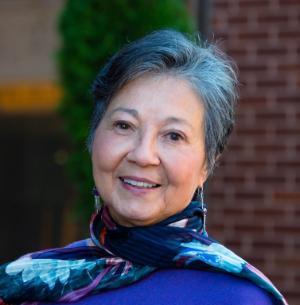
The US is currently threatened with a collapse of its democracy, which has global implications. In this session we will examine how the theological system of white Christian nationalism constructs moral injury as a driver of fascism. We will, as well, consider strategies for resistance and surviving the next decade, including what religious communities may offer to address moral injury and sustain moral resilience for the long struggle ahead.
Rita Nakashima Brock, RelM, MA, PhD (she, her), is the first Asian American woman to earn a doctorate in philosophy of religion and theology in 1988. A scholar, educator, editor, mentor to women of colour scholars, and award-winning author, Dr Brock is a recognised expert on moral injury. She co-founded and directed the Soul Repair Center at Brite Divinity School from 2012 to 2017, and from 2017 to 2025, she was Senior Vice President for Moral Injury Recovery Programs at Volunteers of America (VOA), a large social services non-profit. The educational programmes she created at VOA are now being offered via the Soul Repair Center at Brite Divinity School. She lives in Minnesota, formerly the lands of the Dakota and Anishinaabe peoples.
Dr Brock will be in conversation with Dr Brian Powers, Executive Director of the International Centre for Moral Injury at Durham University.
All are welcome to attend - either in person or online. Please register via Eventbrite to reserve your spot or receive the Teams link.
Videos from previous webinars
Please note that only the talks are recorded. Webinars include around 45 minutes audience discussion that is not recorded.


/prod01/prodbucket01/media/durham-university/research-/research-centres/international-centre-for-moral-injury/Moral-injury-banner-1920X290.jpg)
